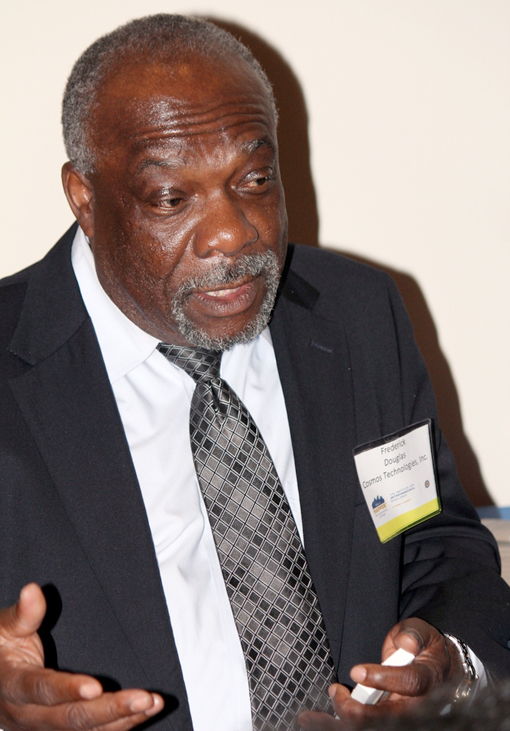
FREDERICK DOUGLASS
At the unveiling of the Emancipation Memorial in Washington’s Lincoln Park, Frederick Douglass was the keynote speaker for the dedication service on April 14, 1876. In his speech, Douglass spoke frankly about Lincoln, noting what he perceived as both the positive and negative attributes of the late President. He called Lincoln “the White man’s president” and cited his tardiness in joining the cause of emancipation. He noted that Lincoln initially opposed the expansion of slavery but did not support its elimination. But Douglass also asked, “Can any Colored man, or any White man friendly to the freedom of all men, ever forget the night which followed the first day of January 1863, when the world was to see if Abraham Lincoln would prove to be as good as his word?” At this speech he also said: “Though Mr. Lincoln shared the prejudices of his White fellow-countrymen against the Negro, it is hardly necessary to say that in his heart of hearts he loathed and hated slavery…”
In his last autobiography, The Life & Times of Frederick Douglass, Douglass referred to Lincoln as America’s “greatest President.”
Frederick Douglass was born a slave as Frederick Augustus Washington Bailey, around Feb. 1818, not really knowing when he was born, and died Feb. 20, 1895. He was an American social reformer, orator, writer and statesman. After escaping from slavery, he became a leader of the abolitionist movement, gaining note for his dazzling oratory and incisive antislavery writing. He stood as a living counter-example to slaveholders’ arguments that slaves did not have the intellectual capacity to function as independent American citizens. Many Northerners also found it hard to believe that such a great orator had been a slave.
Douglass wrote several autobiographies, one describing his experiences in slavery, a second which became influential in its support for abolition. and two covering events through and after the Civil War.
After the Civil War, Douglass remained active in the United States’ struggle to reach its potential as a “land of the free.” Douglass actively supported women’s suffrage. Without his approval, he became the first African-American nominated for Vice President of the United States as the running mate of Victoria Woodhull on the impracticable and small Equal Rights Party ticket. Douglass held multiple public offices.
Douglass was a firm believer in the equality of all people, whether Black, female, Native American, or recent immigrant, famously quoted as saying, “I would unite with anybody to do right and with nobody to do wrong.”
Anna Murray Douglass, a free Black woman, was his wife for 44 years. Once Douglass had arrived in the North after his escape from slavery which she helped orchestrate he sent for her to follow him to New York; she arrived with the necessary basics for them to set up a home. They were married on Sept. 15, 1838, by a Black Presbyterian minister eleven days after his arrival in New York. At first, they adopted Johnson as their married name but later changed it to Douglass.